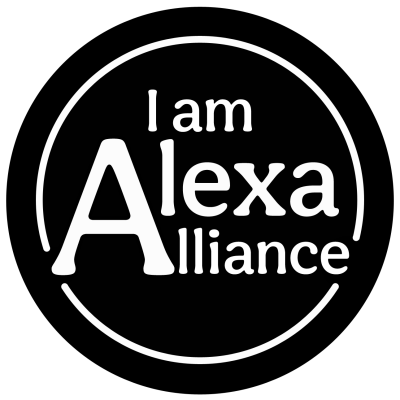Amazon’s Quest to Put “Alexa Everywhere”
No escape for the people affected…
For several years, Amazon has been pushing very hard (and succeeding) in getting their virtual assistant into as many places as possible. They actually have a division in their company responsible for doing this, aptly named “Alexa Everywhere.” What’s the outcome of putting “Alexa Everywhere” for those unlucky people whose name triggers the devices? More places and situations where they have to contend with the problems that the AI causes for them.
Half a billion Amazon AI devices:
The number of devices with Amazon’s virtual assistant in them has been growing exponentially in the last several years. By 2019, they had sold over 100,000,000. Only one year later, at the beginning of 2020, that number had doubled. In May of 2023, Wired.com cited Amazon’s own tally as being more than half a billion.
Where is Amazon’s virtual assistant these days?
Homes: The days of having just one Echo speaker in the home are long gone. Now, many users have a complicated labyrinth of Echo speakers, “Alexa Built-in” devices, and “Alexa Enabled” products, scattered throughout the home.
Cars: The number of new vehicles with “Alexa Built-in” has exploded in the last couple years. Amazon has recently announced a collaboration with Hyundai, whereby users can purchase cars through the Amazon website, and vehicles in 2025 will come bundled with the assistant via the “Alexa Built-in” option. (“Alexa Built-in” devices are required by Amazon to use the “Alexa” wake word only; they cannot be changed to any of the alternatives). The AI can also be added to any vehicle using an Echo Auto device, which also does not allow other wake word options.
Classrooms: There are several groups (such as Iste) actively encouraging teachers to use smart speakers (including Amazon’s) in classrooms, under the hashtag #Alexa4edu.
Gas Stations: Amazon has collaborated with Exxon Mobile to create a way for customers to pay for their gas at participating gas stations by saying “Alexa, Pay For Gas” to their virtual assistant device of choice.
Salons: Amazon has teamed with companies like Kenra to promote the use of the devices in creating “Smart Salons”. It’s common to find the devices in hair and nail salons for playing music, if nothing else.
Dorms: At least one school, St. Louis University, has been putting Amazon speakers in their dorm rooms for several years.
Hospitals and other healthcare settings: The healthcare arena is the most recent frontier Amazon’s AI has conquered. Several large facilities, including Boston’s Cedar-Sinai, as well as at least three St. Joseph hospitals in Florida, have already been putting them into patients’ hospital rooms. They are also found in doctors’ and dentists’ waiting rooms, and even in exam rooms.
Hotels: In 2018, Amazon launched "Alexa for Hospitality,” teaming up with hotel chain Marriot to start putting devices into the guest rooms at some of their hotels. In the fall of 2021, they announced a partnership with Disney, who will be featuring special Disney themed editions of Echo Shows in all of their Walt Disney World Resort hotel rooms.
Offices and other businesses: Amazon has a division, Alexa for Business, promoting their virtual assistant for use in offices to perform multiple functions. The AI is commonly found in many other types of businesses, too, such as retail stores, gyms, cafes, and restaurants.
Outer Space: Amazon announced in early January 2022 that they’ve teamed up with Lockheed Martin and Cisco to demo their virtual assistant on NASA’s Artemis I mission to the moon, with the goal of having “Alexa” integration as part of all future space missions.
Any place that a person can go: Now that Amazon’s virtual assistant is in smart phones and wearable items like ear buds and eyeglasses frames, anywhere a person can go is potentially a place where the AI will be. (Two of the products just listed are ones on which Amazon restricts users from changing the wake word to something other than “Alexa”). Amazon is always looking for more reasons for customers to use their AI on the go; they recently teamed with transit systems in several large cities to introduce “Alexa Transit,” a service using the AI on smart phones to access public transit information, and assist users in navigation.







































